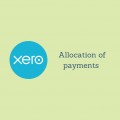
[Covid-19] What if I cannot pay my tax due to COVID-19?
Categories
Due to COVID-19 there will be quite a number of taxpayers who are unable to pay their taxes to Inland Revenue before the due date. This could be due to a strain on cashflow or the inability to get to a bank to arrange payment.
Generally, late payment of tax will result in late payment penalties and use of money interest being charged.
The Government has now provided Inland Revenue with the power to remit interest, which has been charged due to a taxpayer failing to make a tax payment on time, and the taxpayer's failure to pay on time is “significantly adversely” affected by COVID-19. There is no guidance from Inland Revenue as to what constitutes “significantly adversely affected by COVID-19”. These powers apply to tax payments that were due on or after 14 February 2020.
One of the requirements to be met for Inland Revenue to remit the interest is that the taxpayer has asked for the interest to be remitted, and made the payment, as soon as practicable.
Inland Revenue will retain the power to remit interest in these circumstances up until 26 March 2022.
Inland Revenue already has the ability to remit late payment penalties. We have contacted Inland Revenue to find out whether late payment penalties will be remitted in situations where taxpayers are unable to pay due to COVID-19. As yet Inland Revenue has not outlined its position, however, we would be disappointed if the use of money interest could be remitted but late payment penalties could not. Common sense would say they will be remitted.
If you cannot pay tax on time there is the ability to enter into an instalment arrangement with Inland Revenue to pay this off over time. Generally, there is benefit in entering into an instalment arrangement as late payment penalties are reduced. However, if Inland Revenue will remit late payment penalties due to COVID-19 then there is no advantage in entering into an instalment arrangement. Furthermore, an instalment arrangement can be cancelled by Inland Revenue if the taxpayer does not make payments on time, as agreed under the instalment arrangement. Due to the uncertainty in the economic environment, it is highly unlikely at the time of entering an instalment arrangement that taxpayers will know whether they have the ability to make payments on time under an instalment arrangement.
In very extreme cases Inland Revenue has the ability to write-off tax, however, there are certain criteria that has to be met in order for Inland Revenue to write this off.
If you are unable to pay your tax on time then we recommend you advise us as soon as possible so we can discuss the options available to you. We also recommend that you still file all your returns on time to avoid late filing penalties being charged. Furthermore, as soon as cashflow available to make a full or partial payment then funds are applied towards this payment. It must be remembered that Inland Revenue is still expecting payment of this tax – burying the head is not an option.
Ngā mihi nui,
Brad

Brad Phillips
PrincipalArmed with an extensive knowledge bank, Brad specialises in providing taxation services to clients in the corporate, business, and rural sectors. He also has a keen interest in valuation, asset protection, and estate planning matters.
- News


 Ashley Burdon
Ashley Burdon
 Justine Newsome
Justine Newsome 
 Shanell Jarvie
Shanell Jarvie

